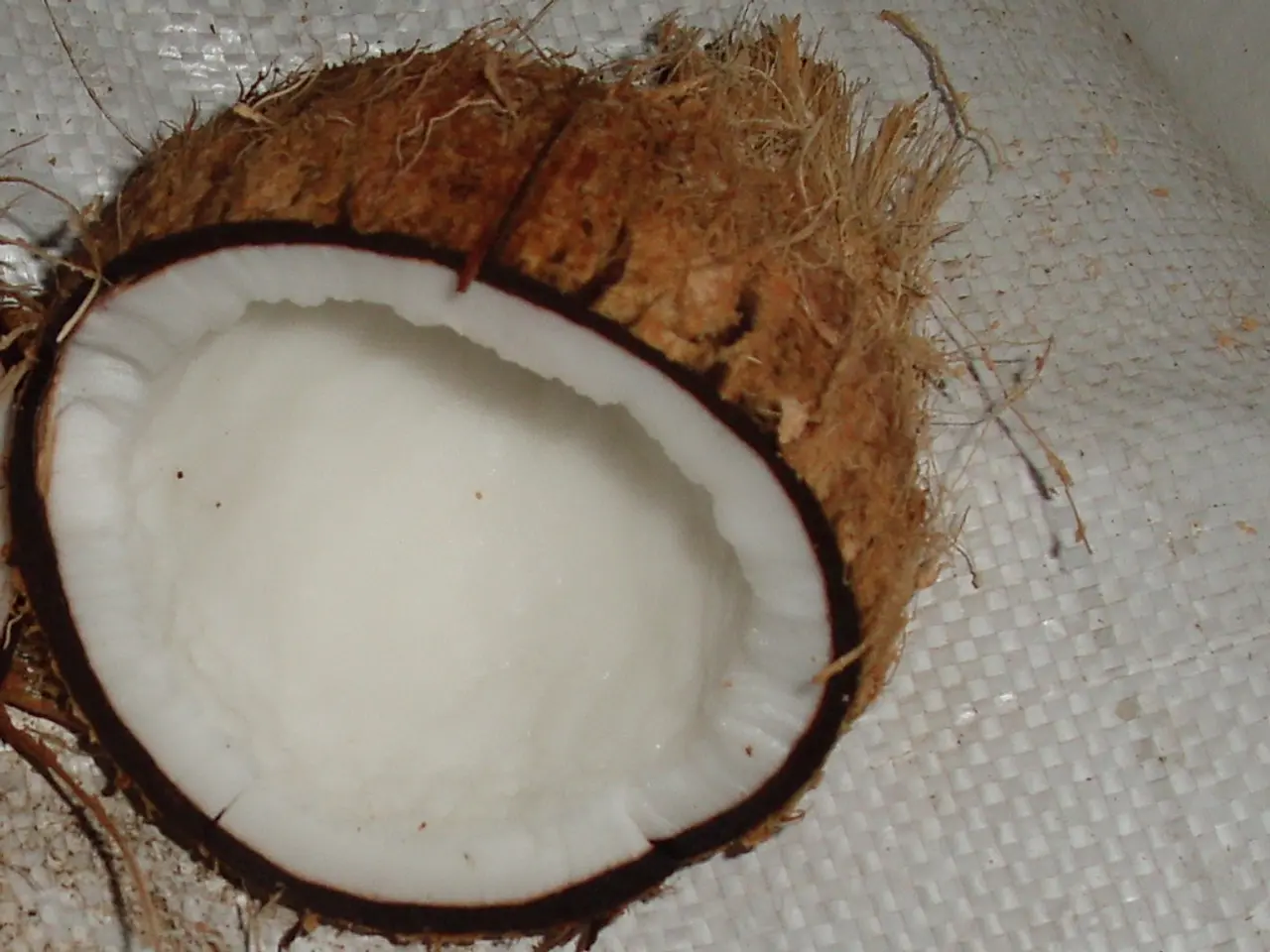Eczema Treatment with Coconut Oil: Understanding Its Function, Advantages, and Applications
In recent years, scientific research has suggested that coconut oil could be a beneficial addition to the treatment of eczema. This tropical oil, rich in fatty acids like lauric acid and myristic acid, has shown potential in managing eczema symptoms due to its anti-inflammatory and skin barrier-protective properties.
A study published in 2019 concluded that virgin coconut oil could help in treating eczema by restoring the skin barrier and decreasing inflammation and infection rates [1]. Further research, such as a 2025 study, demonstrated that coconut oil, when incorporated into novel topical formulations, could prolong the release of corticosteroids for atopic dermatitis treatment, making it a potential enhancer of conventional eczema treatments [2].
Coconut oil's emollient effects are not exclusive to eczema treatment. Other plant oils, like those rich in omega-6 fatty acids, such as soybean and sunflower oil, also support skin barrier maintenance by replenishing deficient lipids in eczema-prone skin [3].
While coconut oil shows promise, it is essential to remember that it is not a standalone cure for eczema. It is best used as part of a broader eczema management plan. Both coconut oil and petroleum jelly, such as Vaseline, can help ease eczema symptoms like a burning sensation, itchiness, and discomfort from cracked skin [4].
When using coconut oil, it is crucial to choose high-quality, organic, extra-virgin or cold-pressed coconut oil to avoid skin irritation from additional chemicals. It can be used like any other moisturizer or lotion, paying special attention to areas prone to flare-ups.
It is important to note that approximately 10% of children may be allergic to coconuts, and individuals should be careful when using coconut oil on infants, toddlers, or older children [5]. The American Academy of Dermatology Association provides detailed instructions for testing for an allergic reaction to coconut oil. Coconut oil is generally safe for infants, but it is always best to check for allergies and speak with a healthcare professional before use.
In summary, coconut oil is an effective adjunctive topical treatment for eczema symptoms, often improving skin hydration and reducing inflammation, with benefits comparable to or enhancing other natural plant oils and conventional therapies [1][2][3][5]. While it is not a standalone cure, it can significantly contribute to eczema management when used as part of a broader plan.
- The emollient effects of coconut oil extend beyond eczema treatment, with other plant oils rich in omega-6 fatty acids, like soybean and sunflower oil, also supporting skin barrier maintenance for eczema-prone skin.
- In health-and-wellness products, coconut oil is often marketed as an ad for its potential benefits in managing eczema symptoms due to its anti-inflammatory and skin barrier-protective properties.
- The science behind the use of coconut oil for eczema treatment suggests that it could be a beneficial entity in the fitness-and-exercise, skin-care, and women's health communities, given its effects on skin hydration and inflammation.
- Despite coconut oil's potential, it is essential to remember that an individual should never rely solely on it as a cure for eczema, and it should be used as part of a broader eczema management plan.
- When using coconut oil, one should opt for high-quality, organic, extra-virgin or cold-pressed coconut oil to avoid skin irritation from additional chemicals, and apply it like any other moisturizer or lotion, focusing on areas prone to flare-ups.
- It is important to be aware that approximately 10% of children may be allergic to coconuts, and individuals should exercise caution when using coconut oil on infants, toddlers, or older children, testing for allergic reactions thoroughly before application and consulting a healthcare professional for guidance.




